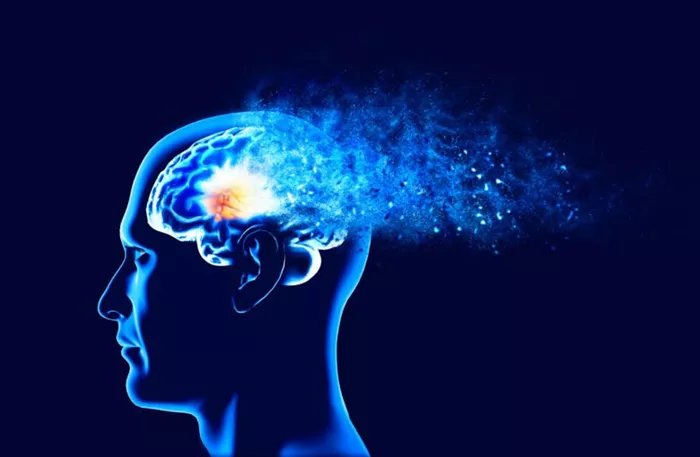Alzheimer’s disease is a condition that affects millions globally, but many people don’t understand its complexities. From the early symptoms to possible treatments, here are 18 facts that will provide you with a deeper understanding of this condition.
1. What Causes Alzheimer’s Disease?
Alzheimer’s is caused by a combination of genetic, environmental, and lifestyle factors. It leads to brain cell death and tissue loss, primarily due to the build-up of amyloid plaques and tau tangles, disrupting communication between brain cells.
2. What Is It Like Having Alzheimer’s?
Living with Alzheimer’s can be a gradual decline in memory, cognition, and personality. Individuals may experience confusion, difficulty recognizing loved ones, or struggle to manage daily tasks. The condition affects both the patient and their loved ones deeply.
3. The 4 Common Symptoms of Alzheimer’s Disease
The four hallmark symptoms include memory loss, difficulty with familiar tasks, confusion about time and place, and trouble understanding visual images. These symptoms progressively worsen as the disease advances.
4. The 7 Stages of Alzheimer’s Disease
Alzheimer’s disease progresses through seven stages. These range from mild forgetfulness to severe memory loss, personality changes, and the inability to communicate. The later stages often involve complete dependence on caregivers.
5. Can Alzheimer’s Disease Be Prevented?
While there is no guaranteed way to prevent Alzheimer’s, maintaining a healthy lifestyle—such as regular exercise, a balanced diet, and mental stimulation—can help reduce the risk of developing the disease.
6. Is There a Cure for Alzheimer’s?
Currently, there is no cure for Alzheimer’s disease. However, treatments can help alleviate symptoms and slow the progression in some cases. Ongoing research is focused on finding a cure.
7. How Long Can You Live With Alzheimer’s?
The lifespan of someone with Alzheimer’s varies, but on average, individuals live for 8 to 10 years after diagnosis. Some may live longer, while others may progress faster, depending on the stage at diagnosis and overall health.
8. Do People with Alzheimer’s Still Feel Love?
Yes, people with Alzheimer’s can still experience emotions like love and affection. Although they may struggle to communicate or remember loved ones, their emotional connections remain strong throughout the disease’s progression.
9. Who Is the Most Famous Person with Alzheimer’s?
The most famous person diagnosed with Alzheimer’s was former U.S. President Ronald Reagan. In 1994, he publicly announced his diagnosis, raising awareness about the disease. Other notable figures include the late Glen Campbell and Perry Como.
10. How to Tell if Someone Has Alzheimer’s?
Symptoms of Alzheimer’s often include forgetfulness, confusion, and difficulty with routine tasks. If you notice these signs in a loved one, it’s essential to seek medical advice for a proper diagnosis and potential intervention.
11. At What Age Does Alzheimer’s Typically Begin?
Alzheimer’s typically affects individuals over the age of 65, though early-onset Alzheimer’s can occur in people as young as 40 or 50. Age is the biggest risk factor for the disease.
12. Early Warning Signs of Alzheimer’s Disease
Early warning signs include memory lapses, difficulty finding words, and misplacing items. These early symptoms are often dismissed as normal signs of aging but can signal the onset of Alzheimer’s disease.
13. Do Alzheimer’s Patients Sleep a Lot?
Yes, many Alzheimer’s patients experience changes in their sleep patterns. This can include excessive sleep, difficulty staying asleep, or confusion about day and night. Sleep disturbances are common as the disease progresses.
14. What Is the 2-Finger Test for Dementia?
The 2-finger test is used to assess a person’s ability to follow simple instructions. In the test, individuals are asked to touch their index finger to their thumb in a specific sequence. Difficulty performing this task can indicate cognitive decline.
15. What Is the Number One Food That Fights Dementia?
A Mediterranean diet, rich in fruits, vegetables, whole grains, and healthy fats like olive oil, is considered one of the most effective in reducing the risk of dementia. Foods rich in antioxidants, such as berries and leafy greens, are particularly beneficial.
16. What Triggers Alzheimer’s?
The exact cause of Alzheimer’s remains unclear, but factors like genetics, brain injury, and poor lifestyle choices—such as lack of exercise, poor diet, and smoking—can increase the risk. Chronic stress and sleep disturbances also contribute to the disease’s development.
17. Foods to Eat to Avoid Alzheimer’s
To help protect against Alzheimer’s, include foods that promote brain health. These include leafy greens, fish rich in omega-3 fatty acids, nuts, berries, and whole grains. Avoid processed foods, excessive sugar, and trans fats.
18. How Can I Test Myself for Alzheimer’s?
While no at-home test can definitively diagnose Alzheimer’s, there are cognitive tests that can be used to assess memory and problem-solving skills. However, a formal diagnosis should always be made by a healthcare professional after a series of tests.
Conclusion
Alzheimer’s disease is complex, but knowledge is a powerful tool. Understanding its symptoms, causes, and potential treatments is essential for early detection and managing the disease. If you or a loved one are concerned about Alzheimer’s, seek advice from a healthcare professional for support and guidance.
Related topics:


